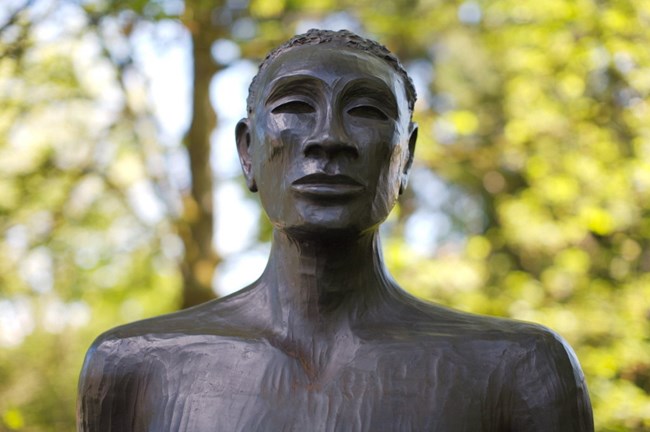Last updated: January 30, 2019
Article
York After the Lewis and Clark Expedition

“York: Terra Incognita” by Alison Saar. On the campus of Lewis and Clark College, Portland, Oregon. Creative Commons.
Relations between the two men worsened in the years to come. In the late summer or early fall of 1809, York’s “misconduct” led to a falling out with his master. Clark removed him from his “privileged” status of body servant and he hired York out for at least a year to a Louisville farm owner by the name of Young. York’s wife still lived in the Louisville area, but it’s not clear if Clark sent him to Young’s farm so he could be closer to his wife, or if he wanted to teach York a lesson, since Young was notorious for abusing his enslaved laborers.
It is at this point where York’s story becomes quite murky. Clark doesn’t mention the slave in this writing again. And it wouldn’t be until 20 years later, in 1832, that Clark would again speak of York. During a visit with the author Washington Irving, Clark stated that he freed a number of his slaves, including York, who supposedly began a cargo company. Clark continued to explain: “He could not get up early enough in the morng [sic] – his horses were ill kept – two died – the others grew poor. He sold them, was cheated – entered into service – fared ill. Damn this freedom, said York, I have never had a happy day since I got it. He determined to go back to his old master – set off for St. Louis, but was taken with the cholera in Tennessee & died.”
Clark’s story about York aren’t the only ones to be told. Others claim there were stories of York sharing his adventures of the Expedition in the taverns of St. Louis, and trappers who traveled the Rockies in the 1830s claim to have met an old black man living among the Crow people in Wyoming who said he had first come into the territory with Lewis and Clark.
While we do know that York had a positive and valued impact on the success of the Lewis and Clark Expedition, we may never know the truth to his life after the Corps.
